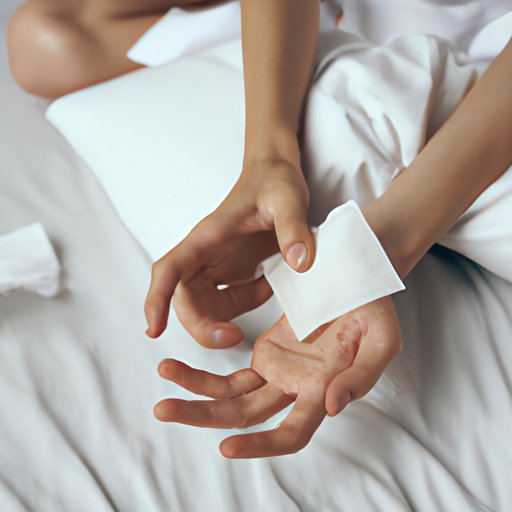Introduction
Bed sores, also known as pressure ulcers or decubitus ulcers, are skin lesions that occur due to prolonged pressure on one area of the body. They are generally found in areas where there is little support such as the hips, ankles, heels, and elbows. Bed sores can range from mild redness to deep tissue damage and can become infected if left untreated.

Overview of Potential Causes and Risk Factors
The most common cause of bed sores is pressure, which can be caused by being confined to a bed or wheelchair for long periods of time without changing positions. Other factors that can increase the risk of developing bed sores include poor nutrition, dehydration, and a weakened immune system. People who suffer from certain diseases such as diabetes, cancer, and kidney disease may also be at an increased risk of developing bed sores.
Preventing Bed Sores
One of the best ways to prevent bed sores is to change your position regularly. This can be done every two hours or more often if necessary. It is also important to keep the skin clean and dry, and use pillows, mattresses, and other support items to reduce pressure on the affected area.
Treating Bed Sores
Treatment for bed sores depends on the severity of the lesion. Mild bed sores may respond to simple home remedies such as keeping the area clean and dry and using a mild moisturizer to soothe the skin. For more severe bed sores, medical care may be necessary. Depending on the severity, treatment may involve antibiotics, debridement (removal of dead tissue), dressings, surgery, and/or hyperbaric oxygen therapy.
When to See a Doctor
If you suspect you or someone you know has a bed sore, it’s important to seek medical attention right away. Signs of infection such as redness, swelling, and fever should be taken seriously and treated promptly. Unusual or severe pain can also indicate a more serious condition and should not be ignored.
Conclusion
Bed sores can be painful and lead to infection if left untreated. The best way to prevent bed sores is to change positions regularly and keep the skin clean and dry. If a bed sore does develop, it’s important to seek medical attention right away. Home remedies such as keeping the area clean and dry and using a mild moisturizer can also help treat mild bed sores. By following these tips, you can help ensure that bed sores are prevented and treated promptly.


